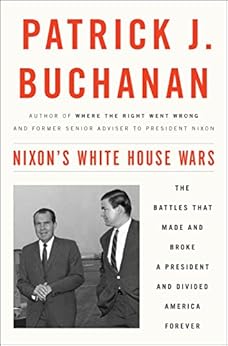Like many before him, Hodgkinson was a malevolent man of the hating and hard left.
His planned atrocity failed because two Capitol Hill cops were at that Alexandria baseball field, providing security for House Whip Steve Scalise. Had those cops not been there, a massacre would have ensued with many more dead than the gunman.
Recall. There were no armed citizens at that Tucson grocery in 2011, when six were murdered and Rep. Gabrielle Giffords was gravely wounded along with a dozen others. The nutcase doing the shooting was only wrestled to the ground when he dropped a clip trying to reload.
The Alexandria attack brings back memories of long ago.
 A day before my 12th birthday, when I was in Children's Hospital with a broken leg, my parents brought me the news that Puerto Rican terrorists had just attempted to assassinate Harry Truman at Blair House. A heroic cop, Leslie Coffelt (left) died stopping them.
A day before my 12th birthday, when I was in Children's Hospital with a broken leg, my parents brought me the news that Puerto Rican terrorists had just attempted to assassinate Harry Truman at Blair House. A heroic cop, Leslie Coffelt (left) died stopping them.
In my second year in high school, blocks from the Capitol, Puerto Rican nationalists entered the visitor's gallery of the House and began firing semiautomatic pistols. Five Congressmen were wounded.
 Democratic politics has often proven a dangerous calling.
Democratic politics has often proven a dangerous calling.
Abraham Lincoln, James Garfield, William McKinley and JFK—one in every 10 of all our presidents—were assassinated.
Attending a service for a South Carolina Congressman in the Capitol in 1835, President Jackson survived twin misfires of two pistols. Old Hickory used his cane to attack his assailant, who was collared by Congressman Davy Crockett of Tennessee.
As a third-party candidate for president in 1912, Theodore Roosevelt was shot in the chest. "It takes more than that to kill a Bull Moose," Teddy scoffed, and finished his speech.
In February 1933, President-elect FDR, in Miami, was the target of would-be assassin Giuseppe Zangara, whose arm was jostled at the moment of firing. The bullet killed Chicago Mayor Anton Cermak.
Between the assassination of JFK in 1963 and near-mortal wounding of President Reagan by John Hinckley in 1981, Martin Luther King was murdered in Memphis in April 1968, and Sen. Robert Kennedy, two months later, in Los Angeles.
Presidential candidate George Wallace, campaigning in Laurel, Maryland, was shot five times in May 1972 by Arthur Bremer, who had spent weeks stalking President Nixon. President Ford was the target of two attempts on his life in 1975, the first by a Manson Family hanger-on Lynette "Squeaky" Fromme, the second by radical leftist Sara Jane Moore.
What drove the assassins?
In the early 20th century, it was anarchism. McKinley was killed by anarchist Leon Czolgosz in Buffalo, New York.
In 1919, Carlo Valdinaci tried to assassinate Attorney General A. Mitchell Palmer with a bomb on his porch at 2132 R Street. Valdinoci tripped on a wicket and his dynamite bomb exploded prematurely, blasting Carlo's body parts all over the neighborhood.
Palmer's neighbor across the street, Assistant Secretary of the Navy Franklin Roosevelt, rushed over to help.
Palmer ordered a roundup of anarchists in what came to be known as "Palmer Raids," and put in charge of field operations a 24-year-old lawyer and D.C. law-enforcement prodigy by the name of John Edgar Hoover.
Hoover's career flourished. But the career of America's most famous anarchist, Emma Goldman, faded. She and ex-lover Alexander Berkman, who had tried to kill Carnegie Steel's Henry Clay Frick during the violent Homestead Strike of 1892, were rounded up and deported in 1920 with hundreds of anarchists to the new Russia of Lenin and Trotsky in a ship the press dubbed "the Red Ark."
A. Mitchell Palmer did not get the 1920 presidential nomination he was seeking. But neighbor FDR did make it onto the ticket.
As radical anarchists were the principal terrorists of the first quarter of the 20th century, and Puerto Rican nationalist-terrorists dominated the 1950s, the 1960s and early 1970s were marked by the seemingly endless violence of the hard left, beginning with the Communist Oswald, who had tried to shoot Gen. Edwin Walker in Dallas before killing JFK.
The campus violence and urban riots of the decade, from Harlem to Watts to Newark and Detroit, to Washington, D.C., and 100 cities after Dr. King's death, were not the work of the Goldwater right.
Those were the days of the Black Panthers, Students for a Democratic Society, Weathermen and the Symbionese Liberation Army. It was America's radical left shooting cops and burning down ROTC buildings. Leftist violence propelled the political careers of Richard Nixon and Ronald Reagan.
 As for James Hodgkinson, he was a Trump-hating left-wing terrorist.
As for James Hodgkinson, he was a Trump-hating left-wing terrorist.
And those who incite sick minds with images of a bloodstained decapitated head of the president, and cheer Central Park productions of "Julius Caesar" with the assassinated Roman Consul made up to look like the president, cannot evade moral culpability.

Patrick J. Buchanan needs no introduction to VDARE.COM readers; his books State of Emergency: The Third World Invasion and Conquest of America, and Suicide of a Superpower: Will America Survive to 2025? are available from Amazon.com. Patrick J. Buchanan is the author of “The Greatest Comeback: How Richard Nixon Rose From Defeat to Create the New Majority.
His latest book, published May 9, is "Nixon's White House Wars: The Battles That Made and Broke a President and Divided America Forever."
COPYRIGHT 2017 CREATORS.COM
 James T. Hodgkinson of Belleville, Illinois, who aspired to end his life as a mass murderer of Republican Congressmen, was a Donald Trump hater and a Bernie Sanders backer.
James T. Hodgkinson of Belleville, Illinois, who aspired to end his life as a mass murderer of Republican Congressmen, was a Donald Trump hater and a Bernie Sanders backer.